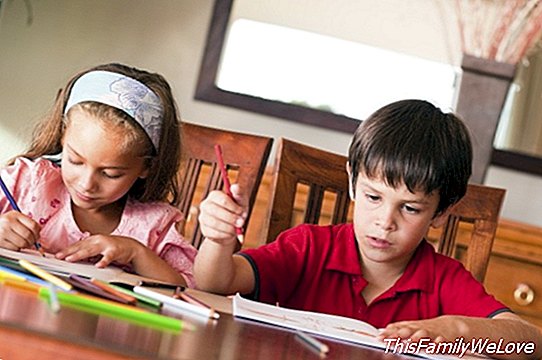80% of parents, concerned about the duties of their children

How do the homework in Spanish homes? This is the question that the study 'Salvemos las cena', by IKEA, wanted to answer. According to this work, 80% of parents think that there should be some change in the concept of chores, they would have to limit themselves or take less time.
This conclusion has been reached after interviewing 2,400 parents with children aged between seven and 17 throughout Spain, children, adolescents and teachers to find out their opinion about school work.
The concept of duties
According to the study data, the vast majority of parents believe that there should be any change in the concept of duties. In his opinion, children should have more free time. The parents also propose that these duties be activities such as reading books, checking data on the Internet, watching movies or visiting museums.
In this same line, the Primary and Secondary teachers: 95 percent of respondents believe that there are other activities beyond daily duties that can help children reinforce their learning. In this point they emphasize the daily tasks (79,7%) or the game (13,7%).
The effects of homework on children
It also stands out in the study that most parents surveyed see homework as activities merely routine and away from reality. 62.4% believe that tasks consist of repetitive exercises or memorizing. It agrees with the opinion of the professors: 81% affirm to follow the activities that appear in the program of studies that are, mainly, of repetition and memorization.
In addition, parents are concerned about the effect of these tasks on their children. 65% think that their children feel overwhelmed or tired because of the time they spend on homework.
To this data adds that almost half of the children surveyed, 43.6%, affirms that the duties exhaust them and leave them little time to be with family and friends. Even 27% feel pressured to have to do them. However, for 56.4% the duties help them to work better in the school or institute.
Time for children's homework
The survey reveals that for 33% of parents the time is excessive that children have to devote to homework. Specifically, 39% declare that their children dedicate between 30 minutes and 1 hour a day to these tasks, while almost 35% mention that between one and two hours.
And what is the opinion of the students? 42.4% of the students surveyed believe that they have to spend too much time to do homework, a task that 72% consider boring. It stands out that this opinion increases up to 77% among those who are 15 to 17 years old, who also devote more time to their duties: between one and two hours each day.
Most teachers say they do not send homework regularly. Specifically, for the 41% who declare sending homework, the main objective is that children can practice and internalize the concepts learned in class (62.7%) or generate a study habit (28.8%).
When asking teachers about the time their students have to devote to homework, almost half, 45%, consider it right to dedicate daily between 30 minutes and one hour, and only 11.3% believe that they should occupy Children between one and two hours.
Duties in the daily life of children and families
An interesting point of the study is the one that investigates how the duties influence the habits of life of the children and, in particular, at dinners. According to these data, 41.9% of parents think that the time their children spend doing homework is an impediment to enjoy more time in the family. It is especially noteworthy that almost half of children and adolescents (49.8%) believe that if they had less homework could enjoy more family dinners.
Damián Montero




